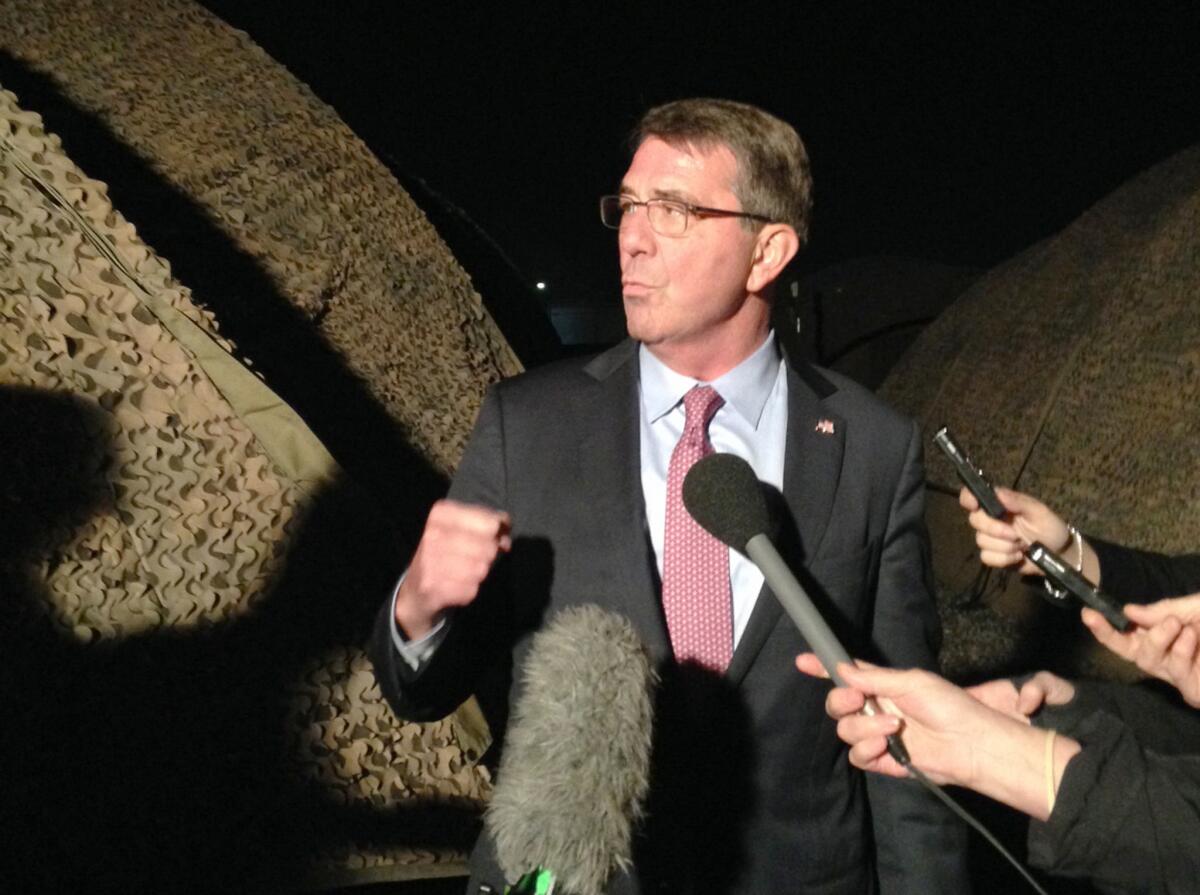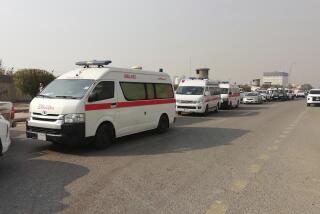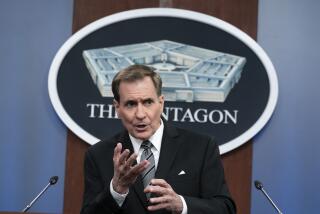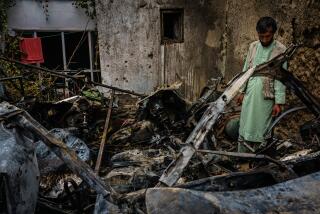Pentagon chief calls friendly fire strike ‘a mistake,’ sends condolences to Iraq

Defense Secretary Ashton Carter speaks to reporters in Irbil, Iraq, on Dec. 17, 2015, during a multistop tour of the region. On Saturday, Carter said an American airstrike that killed Iraqi soldiers seemed to be a mistake by both sides.
REporting from ABOARD THE USS KEARSARGE — Defense Secretary Ashton Carter called Iraqi Prime Minister Haider Abadi by phone from this U.S. ship Saturday to send his sympathies over an airstrike from a coalition warplane that killed nine Iraqi soldiers, the first friendly-fire deaths since the U.S. joined the battle against Islamic State more than a year ago.
“The accident happened,” Carter acknowledged, saying he believed it was an American jet that conducted the strike. “It’s tragic. I expressed our condolences, but he and I both recognize things like this can happen in war.”
The errant strike Friday came amid poor weather when coalition aircraft were supporting Iraqi ground troops near Fallujah, about 30 miles west of Baghdad.
The weather grounded Iraqi army helicopters, so coalition airpower was called in to cover an advance against Islamic State, Iraqi Defense Minister Khaled Obeidi said at a news conference Saturday.
See more of our top stories on Facebook >>
There was fog in the area that may have played a role, according to a senior U.S. defense official.
The strike was “a mistake that involved both sides,” Carter said. An investigation was launched to examine what went wrong, he said.
“I hope Iraqis will understand this is a reflection that things happen in combat, but also a reflection of how close we’re working with the government of Prime Minister Abadi,” Carter said after touring the Kearsarge, an amphibious assault ship supporting the battle against Islamic State in the Persian Gulf.
Carter was making his last stop on a tour this week through Turkey, Bahrain and Iraq, where he visited Baghdad and the northern city of Irbil. He met with troops, allies and commanders involved in the fight against the Islamic State militants in Iraq and Syria.
Carter met with Abadi on Wednesday during his brief visit to Baghdad.
Abadi is under immense pressure to distance himself and the Iraqi military from appearing too reliant on the U.S. government in its war against Islamic State, which still controls some of Iraq’s largest cities.
The Iraqi leader, who heads a fractured government that remains deeply suspicious of U.S. intentions, temporarily declined Carter’s offer of advisors and close air support with Apache helicopters to help recapture Ramadi from Islamic State.
The deadly airstrike could further complicate political discussions among the Shiite Muslim-led government, who has also partnered with Iranian forces and Iraqi Shiite militias backed by Iran.
Regardless, U.S.-led coalition air support has proved critical for the Iraqi army as it fights to take back territory from Islamic State.
Before coming aboard to talk to the more than 1,000 sailors and Marines on the Kearsarge, Carter visited France’s nearby nuclear-powered aircraft carrier Charles de Gaulle.
France has stepped up its strikes against the militants in Syria since Islamic State claimed responsibility for the Nov. 13 attacks that killed 130 people and wounded hundreds more in Paris.
While on board the De Gaulle, Carter called French Defense Minister Jean-Yves Le Drian to discuss ways of further escalating the strikes against the militants.
On a cloudless day, several of 26 French fighter jets aboard the carrier were lined up along the flight deck ready to launch strikes against the militants. The De Gaulle has only been in the Persian Gulf a few days after steaming from the eastern Mediterranean Sea.
The carrier’s jets had not yet begun flying sorties against Islamic State, but French Cmdr. Lionel Delort hinted that would soon change.
“I expect to see something within hours or days,” he said.
Follow @wjhenn for military and defense info.
ALSO
Some lenders are judging you on much more than finances
Bernie Sanders needs a big moment -- can the Democratic debate provide it?
Limited by U.S. banking rules, pot businesses rely on bags of cash and armed guards
More to Read
Sign up for Essential California
The most important California stories and recommendations in your inbox every morning.
You may occasionally receive promotional content from the Los Angeles Times.











